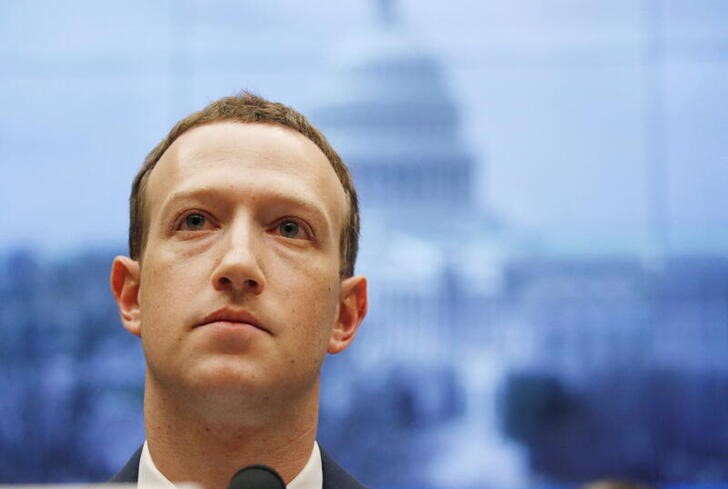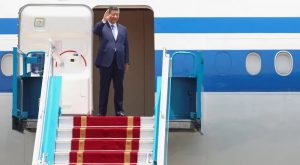Meta Platforms has ditched fact-checking on its popular social media sites – Facebook, Instagram and Threads – in the United States.
The move on Tuesday – Meta’s biggest overhaul of its approach to managing political content on its services in recent memory – will reduce curbs on discussions in the US about contentious topics like immigration and gender identity.
In place of a formal fact-checking programme to address dubious claims posted on Meta’s platforms, Zuckerberg plans instead to implement a system of “community notes” similar to that used on Elon Musk-owned X.
ALSO SEE: Can Musk’s Ties With Trump Overcome US Military Ban on CATL?
It comes after CEO Mark Zuckerberg sought to mend fences with incoming US President Donald Trump, who is due to take office again on January 20.
Last week, Meta promoted Republican policy executive Joel Kaplan as global affairs head and on Monday announced that it had elected Dana White, CEO of Ultimate Fighting Championship and a close friend of Trump, to its board.
“We’ve reached a point where it’s just too many mistakes and too much censorship. It’s time to get back to our roots around free expression,” Zuckerberg said in a video.
He acknowledged the role of the recent US elections in his thinking, saying they “feel like a cultural tipping point, towards once again prioritizing speech.”
Meta also will focus its automated systems on removing “high-severity violations” and illegal content such as terrorism and illicit drugs, Zuckerberg said. It will stop proactively scanning for hate speech and other types of rule-breaking, and review such posts only in response to user reports.
The company will move safety teams overseeing content policies and review out of California, including to Texas, he added.
A Meta spokesperson declined to say which specific teams would be moving to Texas and whether any would be moving to other places. The spokesperson also declined to cite examples of mistakes or bias on the part of fact-checkers.
Fact-checkers shocked
The demise of the fact-checking programme, started in 2016, caught partner organizations by surprise.
“We didn’t know that this move was happening and it comes as a shock to us. This is definitely going to affect us,” said Jesse Stiller, managing editor at Check Your Fact.
The head of the International Fact-Checking Network, Angie Drobnic Holan, challenged Zuckerberg’s characterization of its members as biased or censorious.
“Fact-checking journalism has never censored or removed posts; it’s added information and context to controversial claims, and it’s debunked hoax content and conspiracies. The fact-checkers used by Meta follow a Code of Principles requiring nonpartisanship and transparency,” she said in a statement.
Kristin Roberts, Gannett Media’s chief content officer, said “truth and facts serve everyone — not the right or the left — and that’s what we will continue to deliver.”
Other partners, including AFP, did not immediately respond to requests for comment, while Reuters declined to comment. Meta’s independent Oversight Board welcomed the move.
Zuckerberg in recent months has expressed regret over certain content moderation actions on topics including Covid-19. Meta also donated $1 million to Trump’s inaugural fund, in a departure from its past practice.
Fact-checking to continue in Europe
“This is a major step back for content moderation at a time when disinformation and harmful content are evolving faster than ever,” said Ross Burley, co-founder for non-profit Centre for Information Resilience.
“This move seems more about political appeasement than smart policy.”
For now, Meta is only planning the changes for the US market, with no immediate plans to end its fact-checking programme in places like the European Union that take a more active approach to regulation of tech companies, a spokesperson told Reuters.
“They have come a long way – Meta. The man (Zuckerberg) was very impressive,” Trump said when asked about the company’s plan to end fact-checking.
He added that Zuckerberg was probably responding to threats made to him.
EU monitoring moves to counter distorted information
Musk’s X is already under European Commission investigation over dissemination of illegal content in the EU and the effectiveness of measures taken to combat information manipulation, including the “Community Notes” system.
The Commission launched its probe in December 2023, several months after X launched the feature. A Commission spokesperson said it had taken note of Meta’s announcement and was continuing to monitor the company’s compliance in the EU.
The European Union’s Digital Services Act came into force in 2023 and requires very large online platforms such as X and Facebook to tackle illegal content and risks to public security.
The law imposes rules on content moderation, user privacy and transparency. Any firm found in breach faces a fine worth up to 6% of its global revenue.
Meta said it would start phasing in Community Notes in the US over the next couple of months and improve the model over the year.
It will allow users to call out posts that are potentially misleading and need more context, rather than placing the responsibility on independent fact-checking organizations and experts.
Meta said it will not intervene in the adding of Community Notes to posts on its platforms.
- Reuters with additional editing by Jim Pollard
























